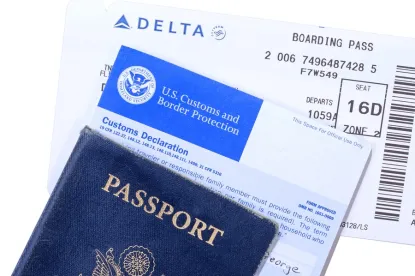The Department of Homeland Security (DHS) has issued additional Visa Waiver Program guidance involving Cuba, Hungary, and Israel.
The Visa Waiver Program allows individuals from selected countries to enter the United States for business or tourism for up to 90 days without obtaining a visa. To enter under the Visa Waiver Program, foreign nationals must apply for approval to use the program through the Electronic System for Travel Authorization (ESTA). Typically, approval is received within five minutes.
- Cuba
Cuba is not a country that is eligible for the Visa Waiver Program. In January 2021, Cuba was designated as state sponsor of terrorism. This meant that individuals (including non-Cubans) who have been present in Cuba on or after January 12, 2021, would be ineligible for visa waiver travel. DHS only recently updated ESTA to capture this information. Those who already have ESTA approvals may have those approvals revoked based upon their travel history. The restriction on visa waiver travel also applies to those who have dual nationality, i.e., they are Cuban and also citizens of a country that is eligible for visa waiver. These newly enforced restrictions do not mean affected individuals cannot travel to the United States, but it means they will have to apply for a B-1 or B-2 visitor visa if they do not meet the very limited exemption criteria.
- Hungary
The Department of State has long been concerned about the abuse of Hungarian passports. Reportedly, 700 non-Hungarians obtained Hungarian passports and 65 (or more) of those entered the United States under the Visa Waiver Program. The problem started more than 10 years ago, when Hungary started a simplified naturalization process. Due to security concerns, Hungarians will be allowed to enter the United States only once a year on a single ESTA visa waiver screening. Nationals of other visa waiver countries can generally enter the United States multiple times during the two-year ESTA approval.
- Israel
For more than 10 years, Israel has been requesting entry into the Visa Waiver Program. Until now, Israel had not been able to meet two of the threshold requirements: (1) having a visa refusal rate under 3%; and (2) not restricting the movement of Palestinian-American travelers into Israel. Israel’s visa refusal rate has dropped below 3% and, on July 20, 2023, Israel announced changes to its short-term entry-and-transit-through-Israel policy. The new policy allows U.S. citizens, “without regard to national origin, dual nationality, ethnicity, or religion, including Palestinian Americans on the Palestinian population registry, to travel to and from Israel via all ports of entry, including Ben Gurion Airport.” DHS announced that it would work with the Israeli government to ensure that these requirements are met. Once satisfied that the requirements are being met consistently, Israel should be able to join the Visa Waiver Program.




 />i
/>i
